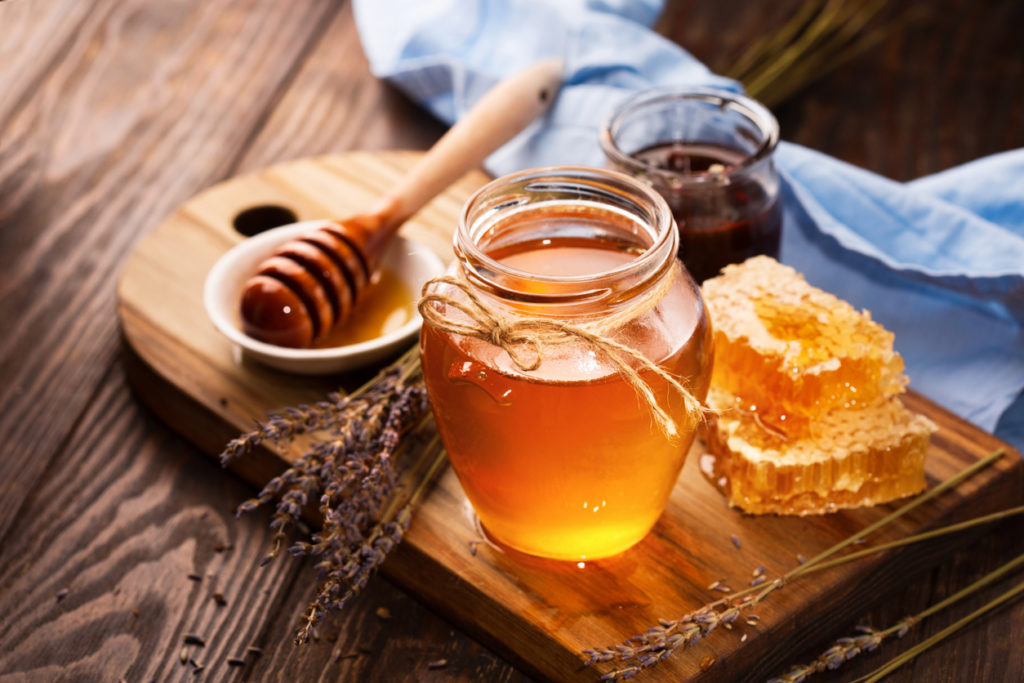Surprise! Honey May Actually Improve Your Oral Health

At our Terwilliger family dental office, we know that most of our patients don’t think of sugar as having many beneficial effects for protecting the long-term health of their teeth and gums. After all, a diet high in sugar contributes to the development of cavities, which can then lead to gum disease and a whole host of other problems. Yet, there’s one type of sweet substance that may actually help to improve your oral health – honey!
In recent years, a number of peer-reviewed journals have explored the role honey could play in helping to eliminate the types of bacteria in the mouth that contribute to the development of tooth decay and gum disease.
One article, published in the Journal of Antimicrobial Chemotherapy, the authors determined: “Honey showed a significant antimicrobial activity against all targeted periopathogens. Additional experiments are required to explore the entire antimicrobial spectrum of honey towards all pathogens involved in periodontal disease.”
In this study, researchers examined various databases for well-designed clinical trials that explored the antimicrobial effects honey has against gum disease causing bacteria. Overall, the researchers found five randomized trials and 11 well-designed studies.
The Complexity of Honey
While there are a variety of different honeys, Manuka honey and multifloral honeys rank as the two most commonly studied by researchers. Most research on honey has focused on these types primarily because it appears that Manuka honey may be the best type.
As the case with all raw honey, Manuka honey is comprised of approximately 80 percent sugar and 17 percent water. That final 3 percent, however, is where the magic resides. A combination of organic acids, minerals, enzymes, and other healthy ingredients work together to provide honey with whatever beneficial properties it possesses.
The content of honey is roughly 38 percent fructose, 31 percent glucose, and then a mixture of other more complex types of sugars the body has a harder time breaking down. Honey also contains somewhere between 4 to 5 percent fructo-oligosaccharides, which are a type of prebiotics that research has found helpful in promoting healthy gut bacteria.
All types of honey contain in the neighborhood of 200 biologically active chemicals. Raw and unfiltered honeys are a good source of amino acids, zinc, potassium, calcium, iron, phosphorus, magnesium, and B vitamins.
However, Manuka honey possesses nearly four times the nutritional content of all other types of flower honey. The majority of pharmacological effects honey has on the body come from polyphenols, which Manuka honey contains in large amounts.
Manuka honey also features a high concentration of methylglyoxal, a unique compound that helps to promote tissue regeneration and a strong immune response in the body.
The more researchers examine Manuka and other types of honey, the clearer it becomes that honey features a variety of healthy benefits.
Oral Health Benefits of Honey
The research into honey has found some surprising oral health benefits. Let’s take a look at a few of the ways honey can work to help protect your teeth and gums.
- Honey possesses antibacterial effects that work to neutralize nearly 60 species of bacteria while also working to prevent the development of resistant bacterial strains.
- Manuka honey has proved effective in preventing the development of biofilms, which make it harder to remove plaque from the surface of your teeth.
- Trails have shown that honey can help to prevent tooth decay and gum disease following orthodontic treatments.
- Manuka honey can control oral odor and help to eliminate or reduce bad breath.
- Honey has proven effective at treating patients experiencing dry mouth.
So, while using honey as part of your oral health routine won’t replace scheduling regular visits to our Terwilliger family dental office, it does appear that it may have a role keeping your teeth and gums looking and feeling their best.
